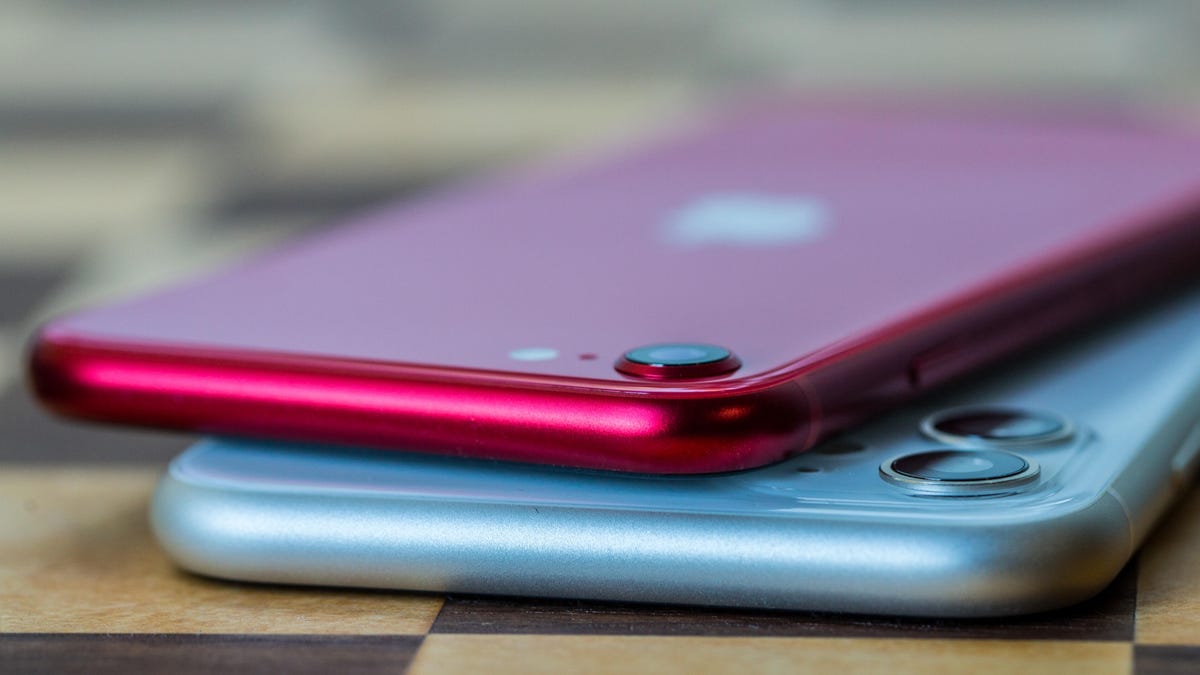iPhone sales got hit by coronavirus. But Apple has a plan
Apple earlier warned that the pandemic has affected its sales. But the tech giant did eke out some wins.

We're just starting to understand the economic toll of the coronavirus.
When Apple warned in mid-February that the coronavirus would take a toll on the company's sales and iPhone supply, it was a surprise. The virus had hit China and some of Europe, but it hadn't yet severely disrupted life in the US.
Two months later, more than 1.1 million cases and 68,000 deaths have been confirmed in the US, and many people live under state-mandated lockdowns. Medical authorities have confirmed 3.6 million cases and 251,000 deaths worldwide, according to data compiled by Johns Hopkins University & Medicine.
Last week, Apple went from ringing the alarm to sharing the details when it released its quarterly results. Unlike in years past, investors had no idea what to expect. Many companies had withdrawn the guidance they gave to Wall Street, merely saying they won't meet whatever numbers they'd offered before.
In Apple's case, the iPhone maker had once expected to tally sales between $63 billion and $67 billion, even with early warning signs of the coronavirus showing disruption to manufacturing and supplies throughout China. The company ended up reporting sales of $58.3 billion, up 1% from the same time a year ago, but far below the initial forecasts. It also tallied a profit of $11.2 billion, down from $11.6 billion a year ago. Sales of the iPhone, which are closely watched by investors, fell nearly 7% to $28.96 billion. Sales of Macs and iPads also fell.
"Do the numbers even matter?" Toni Sacconaghi, a longtime Apple analyst at AllianceBernstein, said in a note to investors before Apple's financial release.
He also expects that the "worst is likely yet to come."
Whatever Apple says is interpreted as a bellwether, as it's one of the world's most highly valued tech companies. Its sales and profits dwarf those of most other companies. Additionally, the $220 billion that Apple has in the bank makes it larger than the gross domestic product of many countries, including Greece, New Zealand and Panama.
Coronavirus updates
No one questions whether Apple will weather the coronavirus and its economic fallout, just as the company easily survived the recession a decade ago. But in trying to forecast what the next year looks like, Apple analysts use words like "economic abyss," "dark days ahead" and "dark valley."
"The negative impact of COVID-19-driven global social distancing on the broader economy and several of our companies' end markets has been severe," wrote analysts at Goldman Sachs in a note before the company's earnings. The firm also downgraded Apple's stock to "sell," in part because it believes other analyst estimates are too optimistic.
Apple's 5G future
Though Apple did release a new MacBook Air, iPad Pro, Magic Keyboard and well-timed $400 iPhone SE this year, none of that will matter much to Apple watchers. The biggest question on everyone's mind will be the next iPhone, which is expected in the fall.
The rumor mill increasingly points to an iPhone that will include 5G wireless technology. This new cellular signal promises download speeds 10 to 100 times speedier than what we have now.
That's part of why nearly every new phone this year has 5G built into it, or will offer a 5G variant. That includes the Samsung Galaxy S20 5G, the LG V60 ThinQ 5G and the OnePlus 8. Aside from many having a conspicuous "5G" attached to their names, all these phones tend to also carry a premium. The $699 OnePlus 8, however, shows prices are coming down.
While the next iPhone is expected to have 5G too, the larger question is when. There's an increasing drumbeat of rumors saying the 2020 iPhone may be delayed by manufacturing slowdowns and supply shortages linked to the coronavirus. One report in Nikkei, citing anonymous sources with "direct knowledge" of Apple's internal discussions, said the phone may be delayed "by months." The Wall Street Journal, meanwhile, said last week that its sources peg the delay at about a month.
Unfortunately even for Apple, analysts say it's unlikely anyone will truly know whether the iPhone will be delayed until closer to launch date. And even if it does launch on time, or slightly later, nearly all experts agree the company will have limited supplies at first.
After the earnings details came out, Apple CEO Tim Cook took the opportunity to signal how one of the world's biggest companies is navigating one of the worst health catastrophes in generations. "Over the long term," he said in a conference call with analysts, "we have a high degree of confidence in the enduring strength of our business."
Morgan Stanley analyst Katy Huberty, for one, told investors in a memo that it's likely Apple will figure out how to help make the iPhone 5G device a hit. "Apple took its medicine early," she said.

